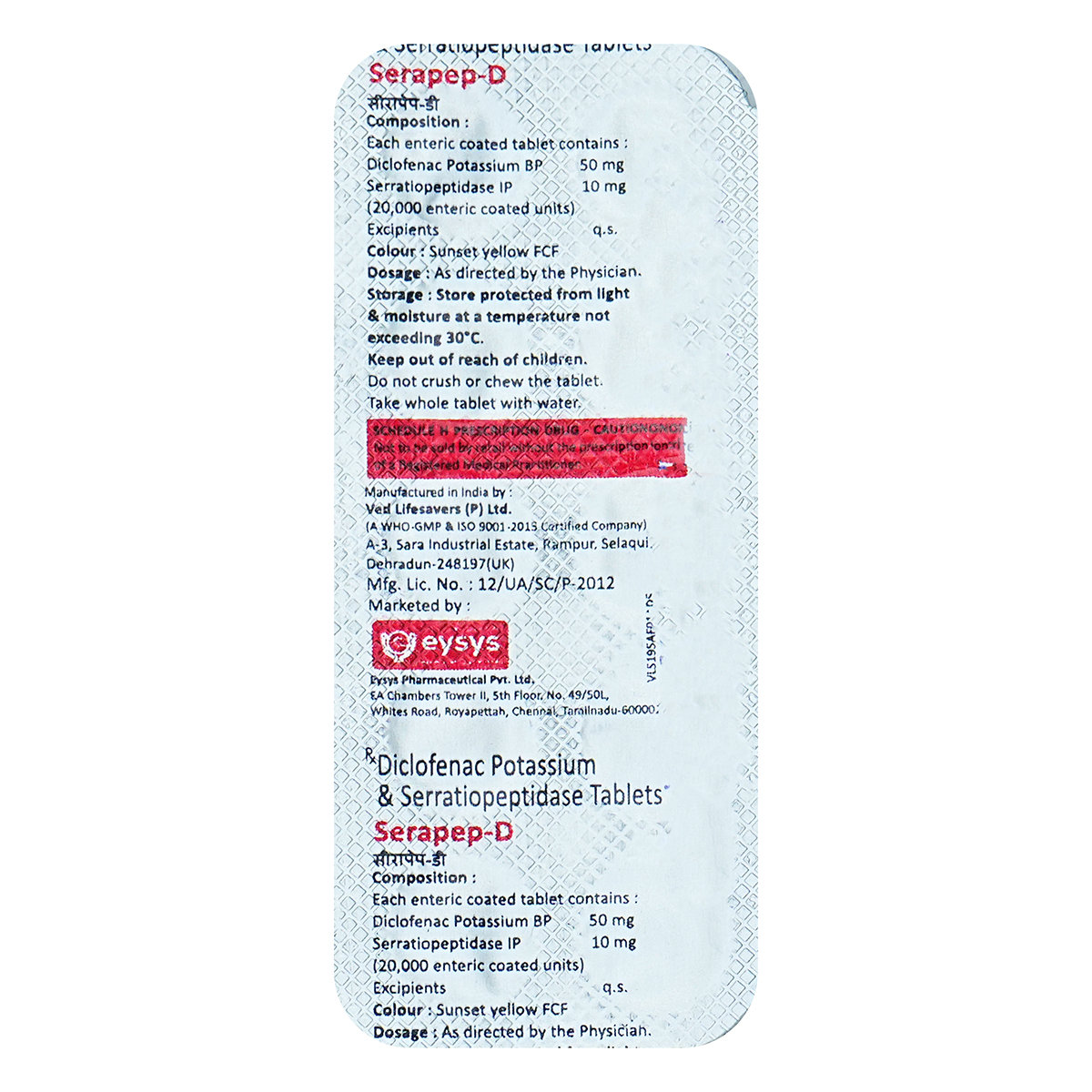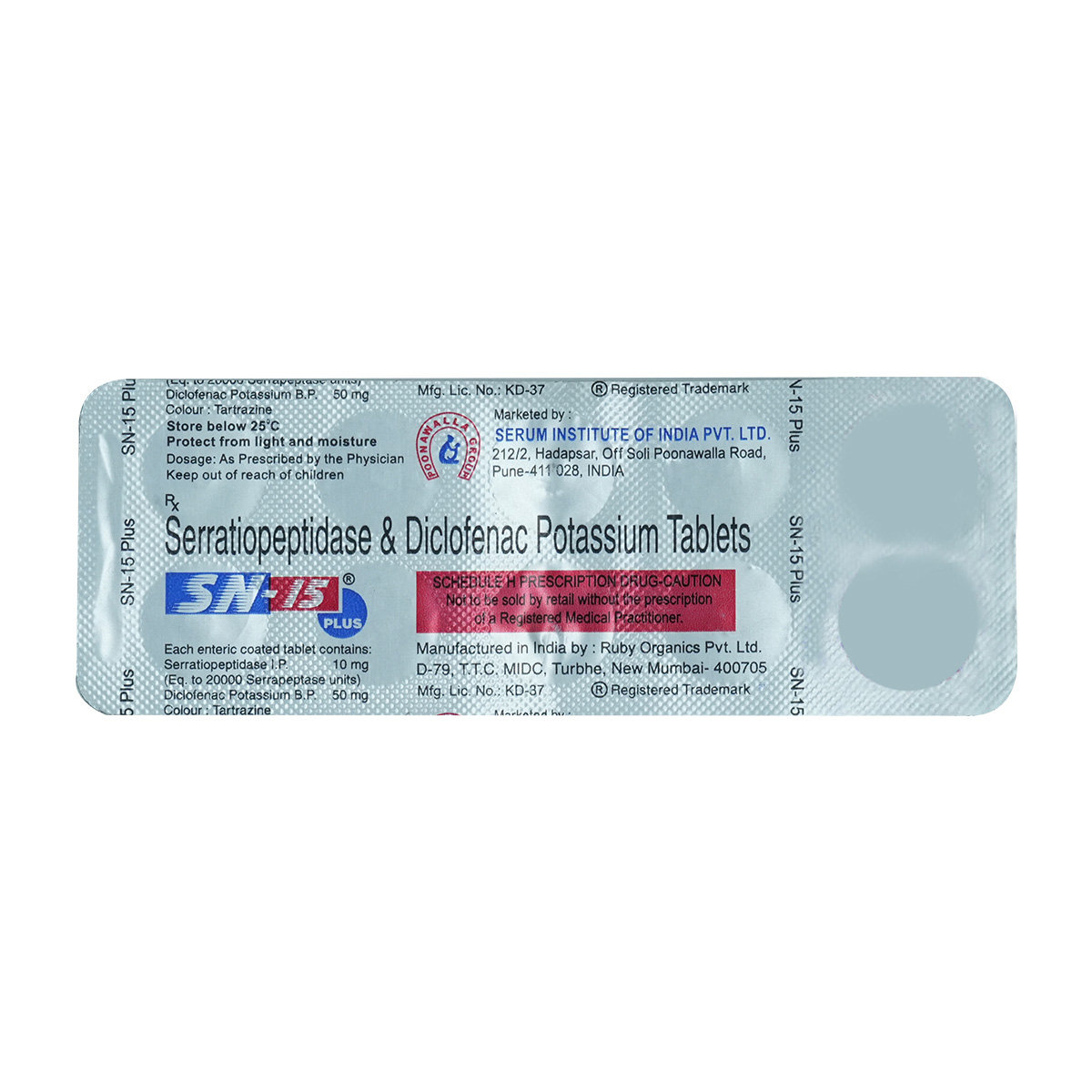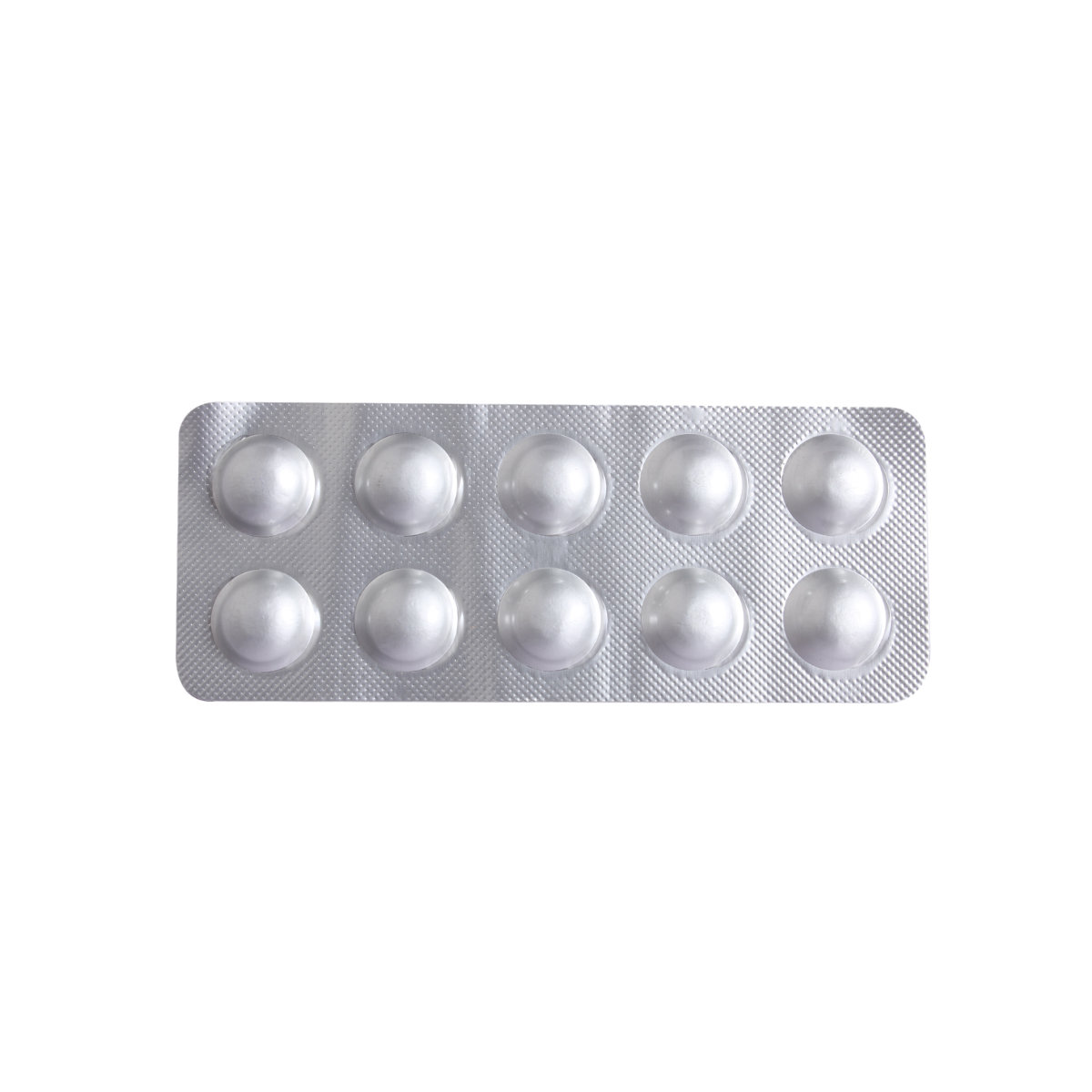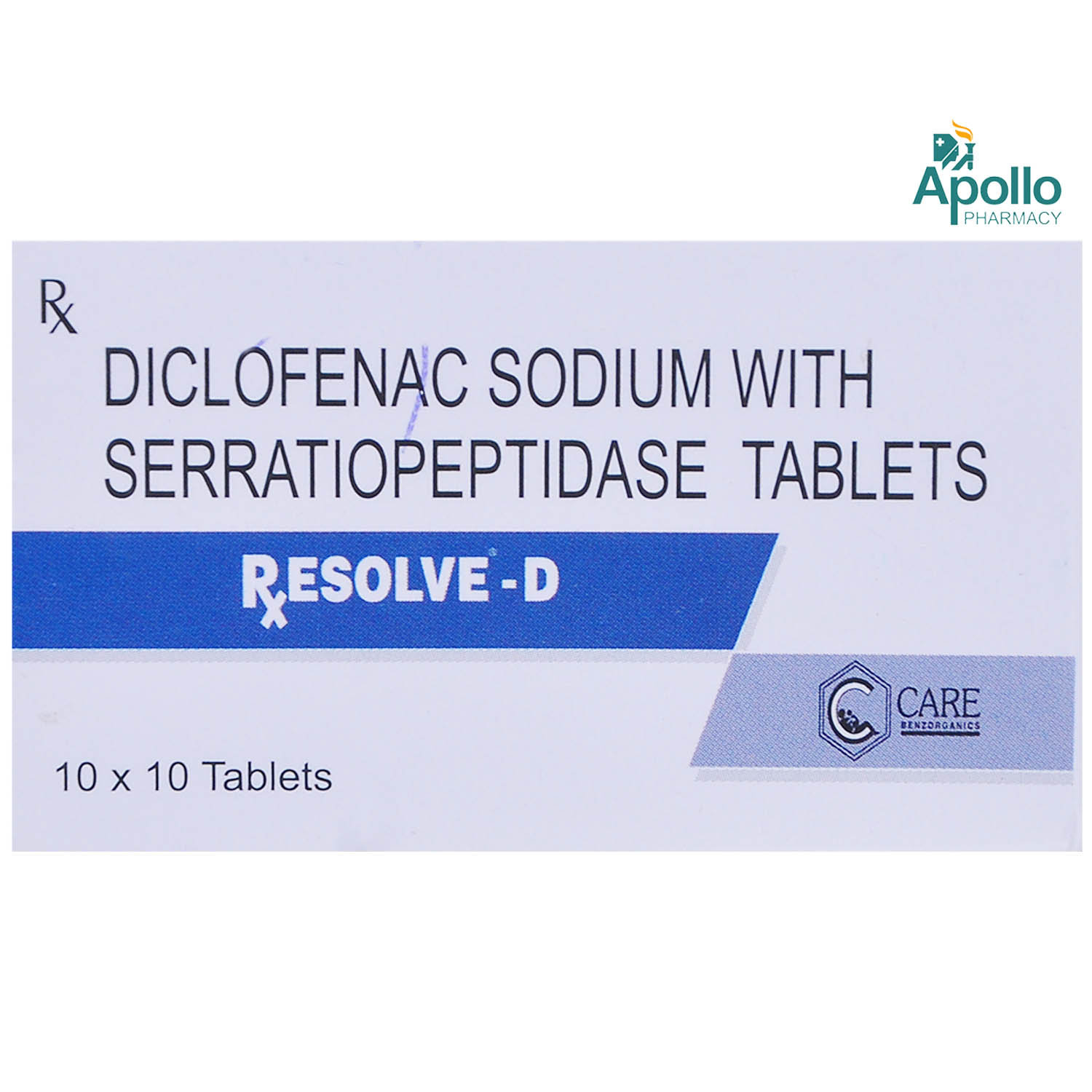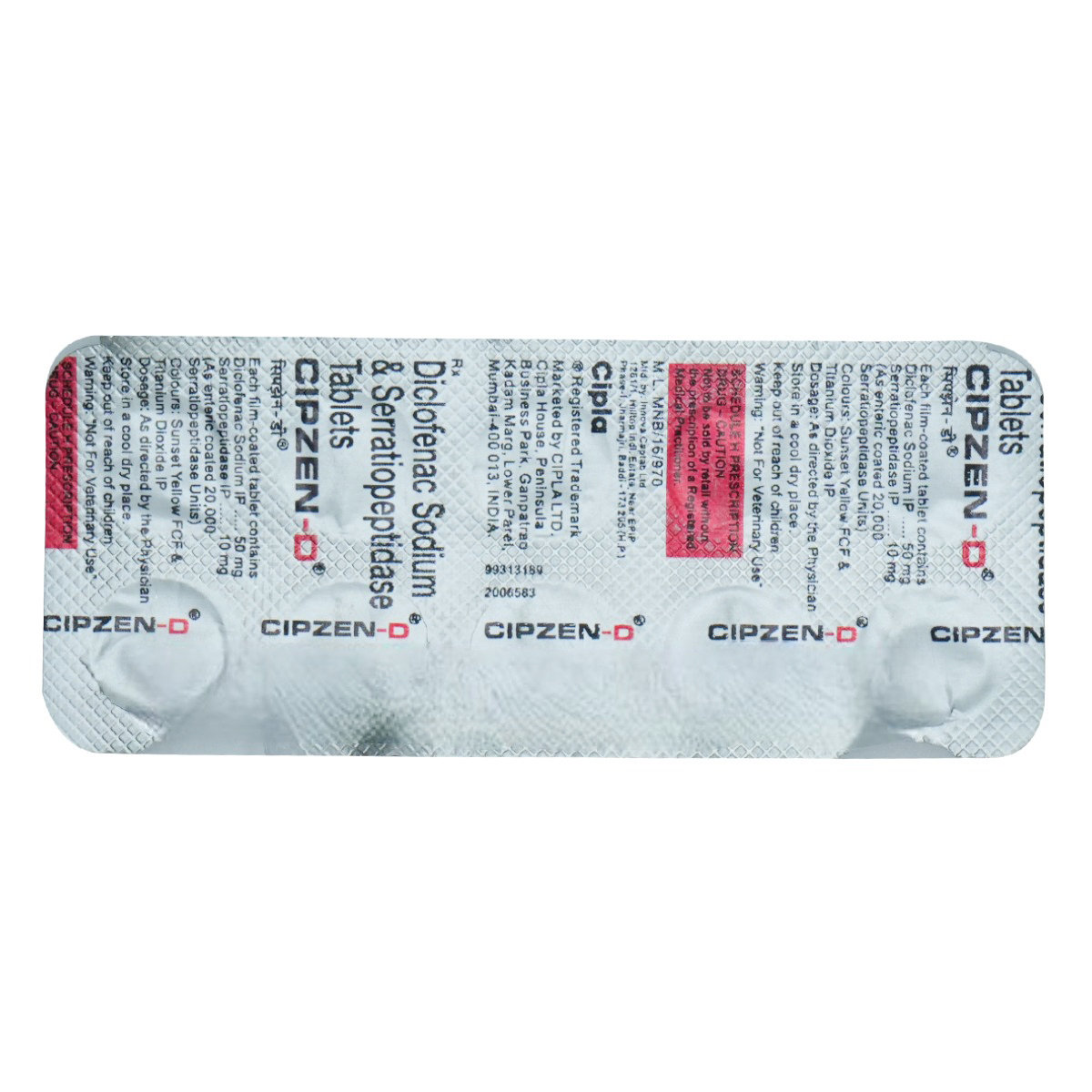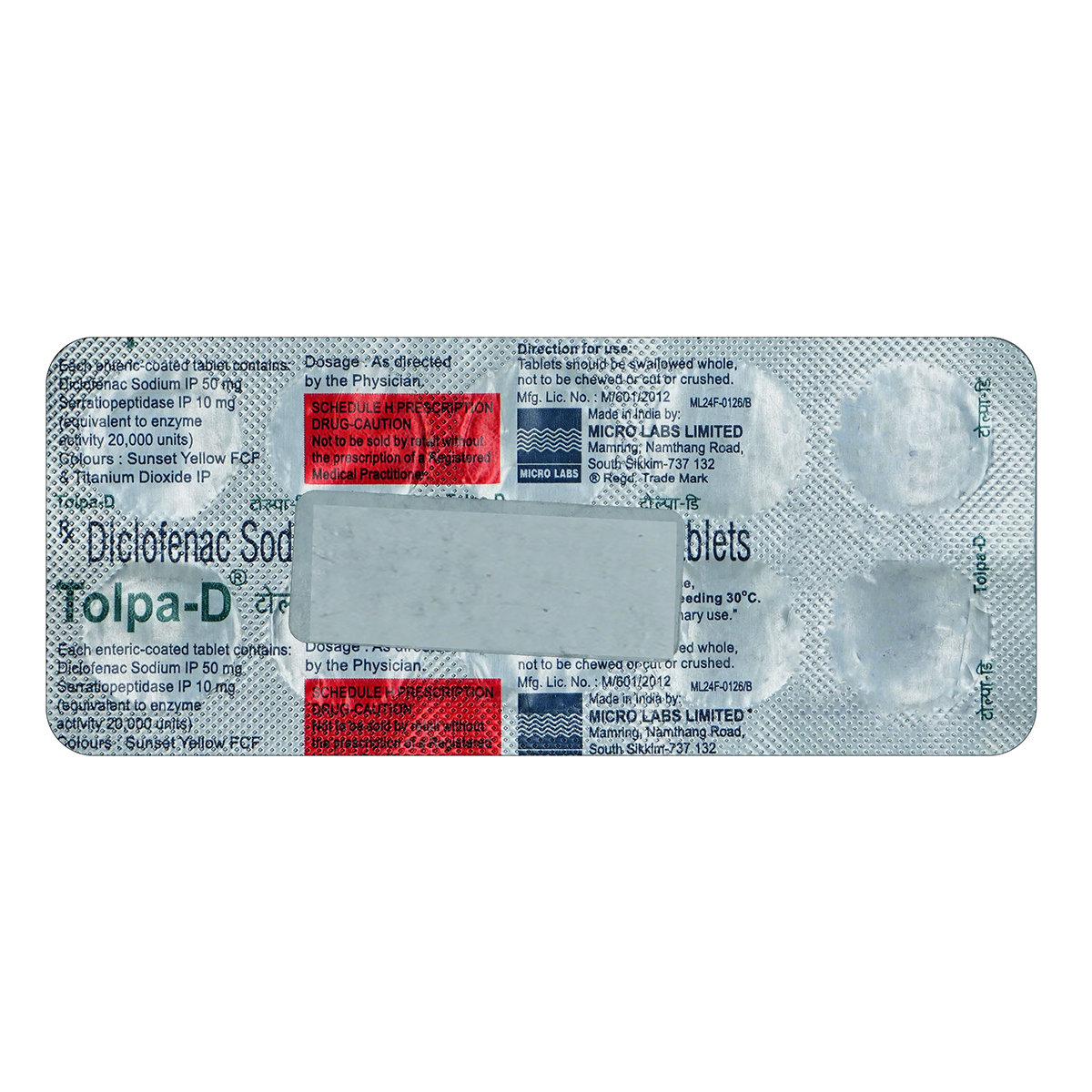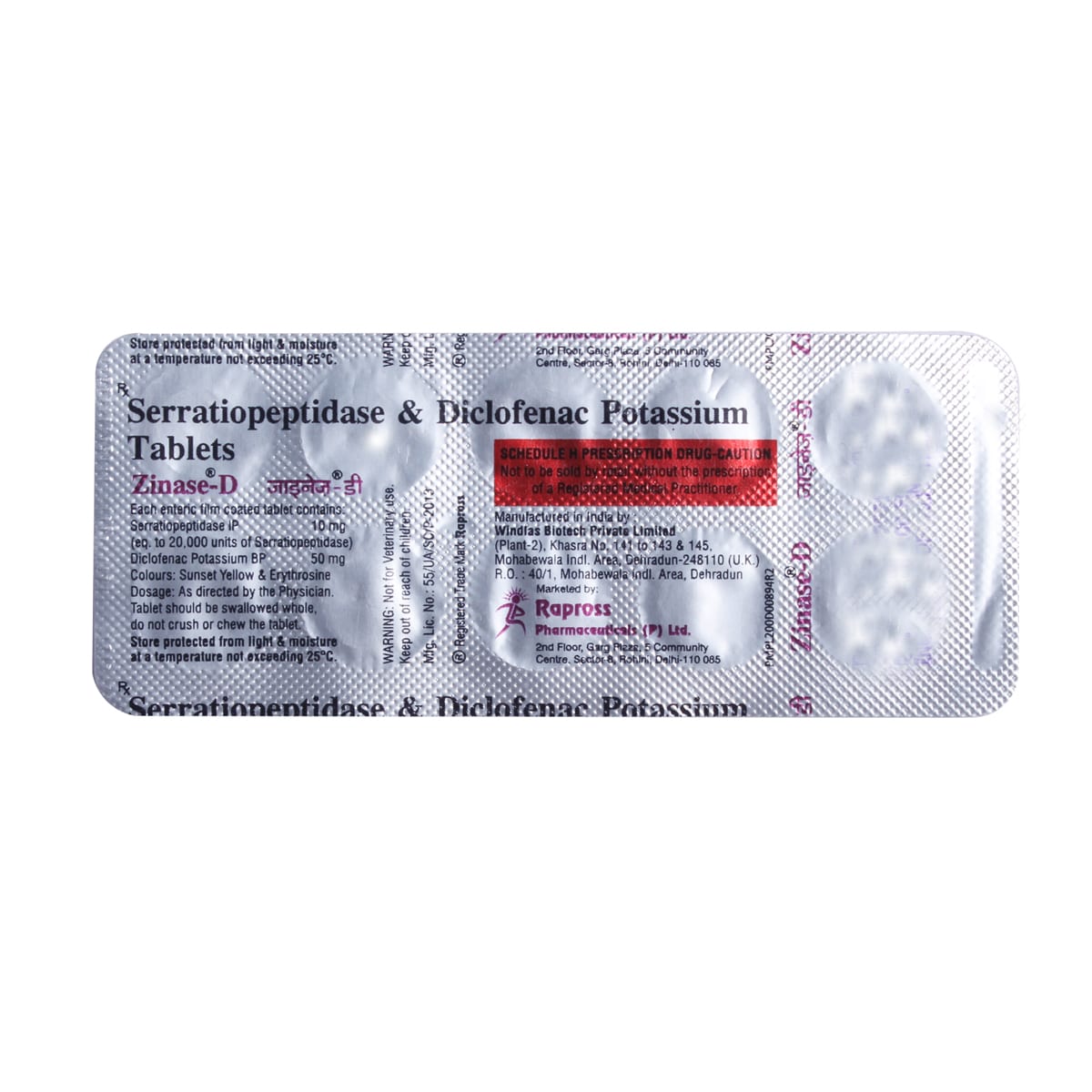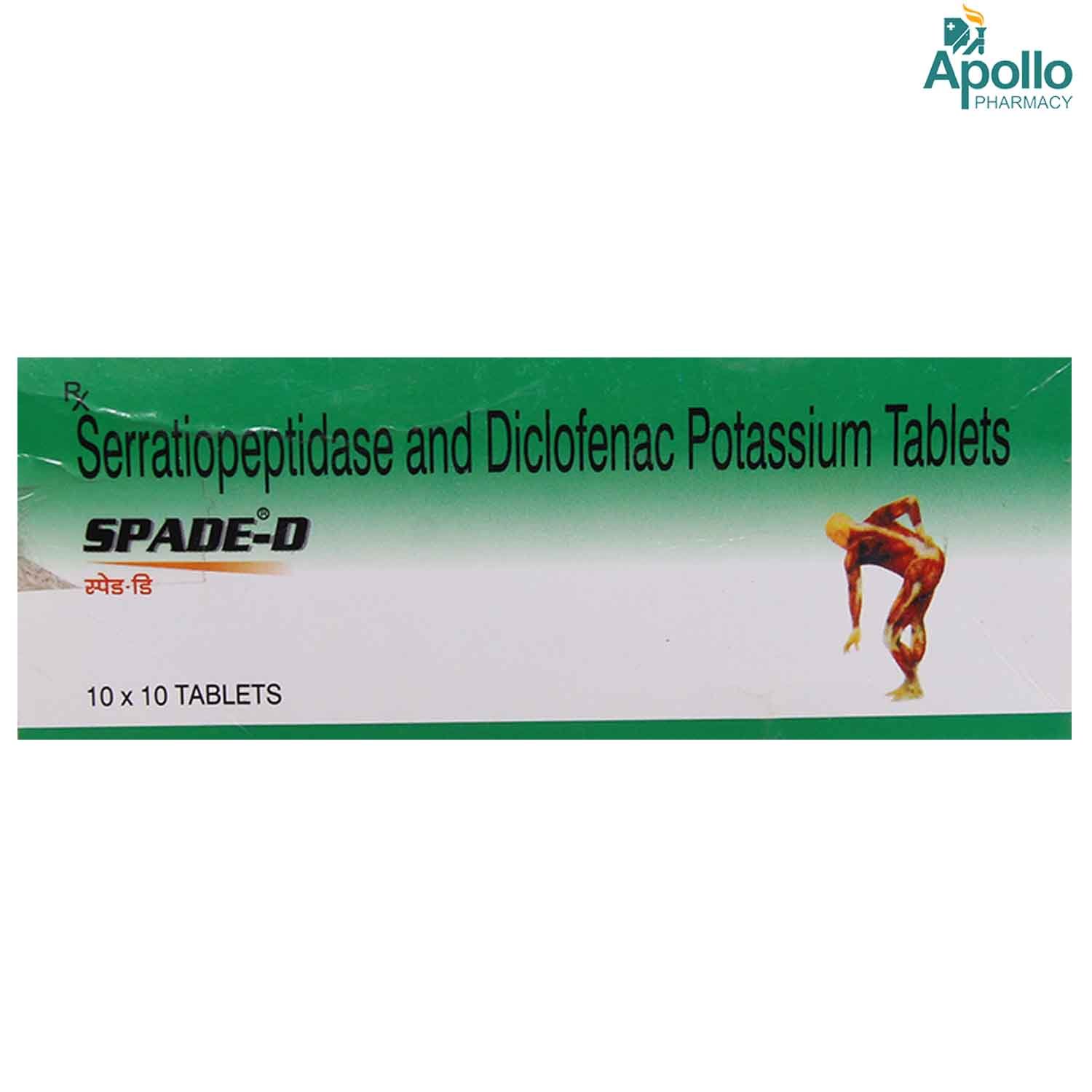Dicomid-D Tablet 10's
MRP ₹90
(Inclusive of all Taxes)
₹13.5 Cashback (15%)
Provide Delivery Location
Online payment accepted
 Prescription drug
Prescription drugWhats That
Composition :
Manufacturer/Marketer :
Consume Type :
Expires on or after :
Return Policy :
About Dicomid-D Tablet
Dicomid-D Tablet belongs to the class of drugs known as 'non-steroidal anti-inflammatory drug' (NSAID). It is a fixed-dose combination composed of diclofenac and serratiopeptidase. Pain can be temporary (acute) or lifelong (chronic) in nature. Acute pain is for short time caused by damage to the tissues of the muscle, bone, or organs. While, chronic pain lasts for life long caused due to nerve damage, osteoarthritis, and dental pain due to damage of the tooth nerve, infection, decay, extraction, or injury.
Dicomid-D Tablet is used in the reduction of pain and inflammation due to bone or soft tissue injury, resolution of postoperative inflammation, oedema (swollen tissue with fluid) and pain. Diclofenac works by blocking the action of a chemical messenger known as cyclo-oxygenase (COX) which causes pain and swelling at the injured or damaged tissue. Serratiopeptidase is a proteolytic enzyme which helps in the breakdown of insoluble protein (fibrin) a by-product of blood clots into smaller units. It also causes thinning of the fluids in the body as a result of injury, thereby making fluid drainage smoother in the swollen tissue.
You can take Dicomid-D Tablet with food or without food. It should be swallowed whole with a glass of water. Do not chew, bite, or break it. Your doctor will advise you on how often you take Dicomid-D Tablet based on your medical condition. Dicomid-D Tablet may have common side effects like stomach ache, diarrhoea, nausea (feeling sick), and indigestion. Most of these side effects of Dicomid-D Tablet do not require medical attention and gradually resolve over time. However, if the side effects are persistent, reach out to your doctor.
Try not to stop taking this medicine of your own. Do not take Dicomid-D Tablet if you are allergic to painkillers like aspirin, ibuprofen, naproxen, or diclofenac. It is not recommended for use in children. Dicomid-D Tablet may be associated with a small increased risk of heart attack ‘myocardial infarction. It is advisable not to exceed the recommended dose or duration of treatment.
Uses of Dicomid-D Tablet
Directions for Use
Key Benefits
Dicomid-D Tablet plays a vital role in reducing pain and inflammation by blocking the release of chemical messengers which cause pain and fever. Dicomid-D Tablet relieves pain and inflammation in arthritic conditions with the benefit of increased antibiotic penetration and micro-circulation at the injury site. Serratiopeptidase present in Dicomid-D Tablet is a proteolytic enzyme which helps in the breakdown of insoluble protein (fibrin) a by-product of blood clots into smaller units. It also causes thinning of the fluids in the body as a result of injury, thereby making fluid drainage smoother in the swollen tissue.
Storage
Drug Warnings
Consumption of alcohol should be avoided during the treatment with Dicomid-D Tablet as it may lead to an increase in the risk of liver damage. Patients with a stomach ulcer, gastric bleeding, severe heart failure, stroke, and hypertension (high blood pressure), should not take Dicomid-D Tablet . Besides this, it should be avoided during the last trimester of pregnancy, unless there are compelling reasons for doing so. If you have a severe allergy to pain killers and, complications like asthma, rhinitis, angioedema (swelling under the skin) or skin rashes, immediately stop taking Dicomid-D Tablet . Do not drive or operate heavy machinery as intake of Dicomid-D Tablet may cause dizziness. Patients who had recently undergone heart bypass surgery should take Dicomid-D Tablet with caution and only under medical supervision. Use of Dicomid-D Tablet is contraindicated in kidney failure patients or who are undergoing dialysis.
Diet & Lifestyle Advise
- Include more glucosamine, chondroitin sulphate, Vitamin D, and calcium-enriched supplements. Besides this, turmeric and fish oils can help in reducing inflammation in the tissue.
- Do not go for heavy exercise as it may increase your joint pain in arthritis. Instead you can do stretching, low impact aerobic exercise like walking on treadmill, bike riding and swimming. You can also strengthen your muscle strength by lifting light weights.
- In chronic condition of arthritis or joint pain try to include fish like salmon, trout, tuna, and sardines. These fishes are enriched with omega-3 fatty acids that minimize level of chemical called cytokines, which ramp up inflammation.
- Your sitting posture is important especially when have pain and inflammation conditions. Try to sit little as possible, and only for short time (10-15 min). Use back support like a rolled-up towel at the back of your curve to minimize pain. Keep your knees and hips at a right angle. Besides this, you can use a foot rest if required.
Side Effects of Dicomid-D Tablet
- Stomach ache
- Diarrhoea
- Nausea (feeling sick)
- Indigestion
Habit Forming
Therapeutic Class
All Substitutes & Brand Comparisons
RX
Serapep-D Tablet 10's
Isis Healthcare India Pvt Ltd
₹104
(₹9.36 per unit)
15% COSTLIERRX
SN 15 Plus Tablet 10's
Serum Institute Of India Pvt Ltd
₹109.5
(₹9.86 per unit)
21% COSTLIERRX
Seradic Tablet 10's
Ochoa Laborotaries Ltd
₹124
(₹11.17 per unit)
37% COSTLIER
FAQs
Drug-Drug Interactions Checker List
- NIMESULIDE
- OXYPHENBUTAZONE
- METAMIZOLE
- METHOTREXATE
- WARFARIN
Disease/Condition Glossary
Pain can be temporary (acute) or lifelong (chronic) in nature. Acute pain is for short time caused by damage to the tissues of the muscle, bone, or organs. While, chronic pain lasts for life long caused due to nerve damage, osteoarthritis, and dental pain due to damage to the tooth nerve, infection, decay, extraction, or injury. There are different types of musculoskeletal pain caused due to soft tissue (muscle, tendon and ligaments) injury. Extreme tissue pain and inflammation caused due to sprains, strains, or trauma or post-surgery may require a prolonged amount of time to heal. There are different types of musculoskeletal pain caused due to soft tissue (muscle, tendon and ligaments) injury. Extreme tissue pain and inflammation are caused due to sprains, strains, trauma or post-surgery. These types of injuries may require a prolonged amount of time to heal.

Have a query?
Alcohol
Safe if prescribed
You are recommended not to consume alcohol along with Dicomid-D Tablet to avoid unpleasant side-effects.
Pregnancy
Consult your doctor
Please inform your doctor if you are pregnant or planning to become pregnant before taking Dicomid-D Tablet .
Breast Feeding
Consult your doctor
Dicomid-D Tablet may pass into the breast milk. Consult your doctor for more information on this if you are a breastfeeding mother.
Driving
Safe if prescribed
Dicomid-D Tablet may affect driving as it causes dizziness. Drive or operate machinery only when you are alert.
Liver
Consult your doctor
Dicomid-D Tablet to be taken with caution, especially if you have a history of liver diseases/conditions. Dose may have to be adjusted by your doctor.
Kidney
Consult your doctor
Dicomid-D Tablet to be taken with caution if you have a history of kidney diseases/conditions. Dose may have to be adjusted by your doctor.
Children
Safe if prescribed
Dicomid-D Tablet is not recommended for children under 10 years of age. For them dose has to be adjusted and recommended by a child specialist only.




